Building Resilience and Belonging through Trauma-Sensitive Yoga
Starr believes, as its founder Floyd Starr did, that there is no such thing as a bad child. And, when you provide a safe environment, when you treat a child with dignity and respect, it changes a child’s heart. And that, in the end, is what changes a child’s life. It’s a powerful story that we have been helping children write for over 100 years at Starr Commonwealth. For all students on Starr’s campus, this approach is applied to healing their pain-based behavior. By identifying what has happened, or is happening, within each individual on our campus, by understanding their own internal logic, our staff is able to assess and treat trauma to ensure resilience and future success.
Taking a modern approach to Starr’s 1913 Creed that “badness is the result of misdirected energy,” our trauma-informed methodology traditionally utilizes therapy, education, work, and play to help our students focus, reset, and grow. But how might these practices need to adapt when the “misdirected energy” of some students is the result of traumas that go beyond the most commonly thought of, or even imaginable, forms? Starr Albion Prep’s Commercial Sexual Exploitation of Children (CSEC) program, led by Starr Albion Prep’s director of therapeutic services, Mackenzie Bentley, addresses such trauma, and it has required us to think beyond our traditional programming.
For the victims of human trafficking, the first step is often the most difficult task — helping these children make sense of what has happened to them. To get them to understand they are victims, much of our time is spent in cognitive restructuring to help them see that they, in fact, were exploited. As one girl simply put it, “I didn’t even know I was being trafficked.” This cognitive restructuring takes the shape of conversations, readings and videos on what modern trafficking looks like, as well as journaling to identify what has specifically happened in their past, or is happening currently inside them, to help re-shape their image of themselves. And, while this programming is vital to the healing process, Starr’s most dynamic approach to building resilience in these victims is through physical supplements to their mental care.
“Trauma is a body experience,” explains Starr’s senior trainer and yoga instructor, Erin Reed. “You’re activated into a sympathetic nervous system response, and if you’re living in that experience over and over again you begin to create physical patterns you unconsciously repeat.” Through teaching yoga, “we are creating awareness of those patterns, and empowering these girls to make choices about their reactions.” In that spirit, yoga is providing a modern day coping strategy for the “misdirected energy” that Floyd Starr spoke to 106 years ago.
In conjunction with Starr’s CSEC program, Reed’s yoga classes are offering a focus on therapeutic themes including acceptance of self, awareness, and empowerment over the safety of one’s own body, and ultimately, personal resilience. “We’re helping these girls befriend and care for their bodies by putting aside the shame that comes from the traumatic experience [of trafficking]. We help girls reconnect with themselves in a compassionate way,” says Reed, who has prepared for this program for over a year with 200 hours of trauma-informed yoga, and 300 more to come this year. “[Yoga] has helped me shape my wounds into areas where I have become my strongest, and now I am able to help others who are hurting and give them a space to do the same. In that way, I’m not really a teacher, but simply a guide for these girls to have that same healing with their bodies.” This guidance shifts traditional therapy models into a both intrapersonal and interpersonal experience.
“In a traditional disease model, we’re really disempowered by relying on medicine or a therapist to heal our wounds,” says Reed. “It takes away the power of relationship, whereas a therapeutic yoga model gives us the power to heal ourselves by first becoming aware of ourselves, and then sharing a common space and celebrating a common experience with the group.” Despite only being a few months into the program, self-healing, according to both Reed and Bentley, has already proven its effectiveness.
“It’s miraculous what we have seen,” Bentley celebrates. “The girls are growing week to week and able to even teach each other as they build skills.” While most programming in residential settings is at risk of carrying the stigma that it’s required to complete one’s stay, both Bentley and Reed say they have girls asking for more time in group, extra yoga sessions, and seeing an overall excitement to be a part of the program. What Reed has experienced in yoga sessions has confirmed the success of the program. “Each class I see girls spending more and more time being connected with their bodies and less time dropping out of poses. They have been shifting away from their learned hyper-vigilance to spending more time feeling safe with their eyes closed. They’re not only connecting what they’re feeling in life to what they’re doing on their mats, but wanting to then share their experiences with the group after.” This sense of empowerment and sharing has multiple benefits, and it is paving the way for the future of trauma sensitive programming at Starr Commonwealth.
“What these girls have been through distorts all sense of belonging,” says Reed. “We’re helping them rebuild a healthy sense of that belonging, of their self-image, and of their own empowerment and resilience.” Considering what both teachers have shared in terms of early success, that progress towards belonging and empowerment is well on its way, and encourages Reed to look to the future of the program. “What these girls have learned about their journey means that they will be the best guides for other victims. Their insight and understanding will allow them to be the most effective stewards to other women who have these same experiences.” Until those future plans can come to fruition, Reed and Bentley can reflect on the growth they have found in their own work, as well as its benefit to the campus of Starr Commonwealth as a whole.
“I have been deeply impacted by being in that group with them,” claims Bentley. Reed has experienced a similar, personal reaction as “[she] feels most connected to [her soul] when doing this work.” And while these two are able to grow from direct interaction with the program, the presence of these girls on campus means that all of the residential campus must carry with them the knowledge that some forms of trauma and victimization aren’t yet fully recognized and addressed in our society, and they challenge traditional treatment and require new approaches. Ultimately, the introduction of the CSEC program has allowed for Starr to foster healing through a more dynamic trauma-informed approach, and staff can find even more courage in each child they serve. In that spirit, these girls have empowered not only themselves, but a bigger community than they may ever realize.
For more resources on human trafficking, visit gems-girls.org or the SW Michigan Human Trafficking Task Force Facebook page.
If you are driven to heal like Mackenzie Bentley and Erin Reed, and would like to learn more about trauma-informed care in your organization, visit starr.org/courses.


